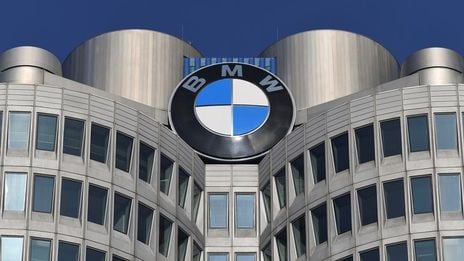* Xi Jinping on his first European tour in five years
* Xi in Hungary after visiting France and Serbia
* China and Hungary expected to sign 16 to 18 cooperation deals
* Hungary a big supporter of China's Belt and Road infrastructure project
BUDAPEST, May 9 (Reuters) -
Hungarian soldiers on horseback joined President Tamas Sulyok to give Chinese President Xi Jinping a warm welcome in the grounds of Budapest's spectacular Buda Castle on Monday on the third and final stop on Xi's first European tour in five years.
Hungary under right-leaning Prime Minister Viktor Orban has become an important trade and investment partner for China, in contrast with some other EU nations that are considering becoming less dependent on the world's second-largest economy.
Xi arrived in Budapest late on Wednesday after visiting France and Serbia. In Paris, President Emmanuel Macron and EU Commission chief Ursula von der Leyen pressed him to ensure more balanced trade with Europe and use his influence on Russia to end the war in Ukraine.
Xi has "developed deep friendships" with Hungarian politicians and Hungary was "the number one target in the central eastern European region for Chinese investment", Xi wrote in pro-government daily Magyar Nemzet on Wednesday.
Xi is scheduled to meet Orban later in the day, with the war in Ukraine and infrastructure projects high on the agenda. A press statement is expected at 1530 GMT.
Hungary and China, which mark their 75th year of diplomatic relations, are also expected to sign 16 to 18 new cooperation agreements, one of which could be a large-scale infrastructure project within China's huge Belt and Road project, Foreign Minister Peter Szijjarto said this week.
Media outlets reported that Xi and Orban might travel to the southern town of Pecs to announce that China's Great Wall Motor is going to build a plant and produce electric vehicles there.
Szijjarto denied that the two leaders would travel to Pecs in a statement on Monday, but said that "there were ongoing negotiations with large Chinese companies about further investments". The government did not respond to a request for comment on the media reports.
Orban started bringing his country closer to Beijing after he came to power in 2010. Warm political relations turned into investments about a decade later when battery and electric vehicle makers started to bring production to Hungary.
One of the biggest investors, CATL, is building a 7.3 billion euro ($7.86 billion) battery plant in Debrecen while Chinese EV maker BYD announced late last year that it was building its first European plant in southern Szeged.
China brought battery production into Europe first to save on shipping costs, as they were so heavy that it made sense to move production next to car factories of companies such as Daimler and BMW, Tamas Matura, assistant professor at Corvinus University, said.
The next step is producing Chinese electric vehicles in Hungary as the EU's protectionist plans are threatening their expansion, he added.
"These could affect them much less if they are already established and produce inside the EU," he said. (Reporting by Anita Komuves and Boldizsar Gyori; Editing by Nick Macfie)











